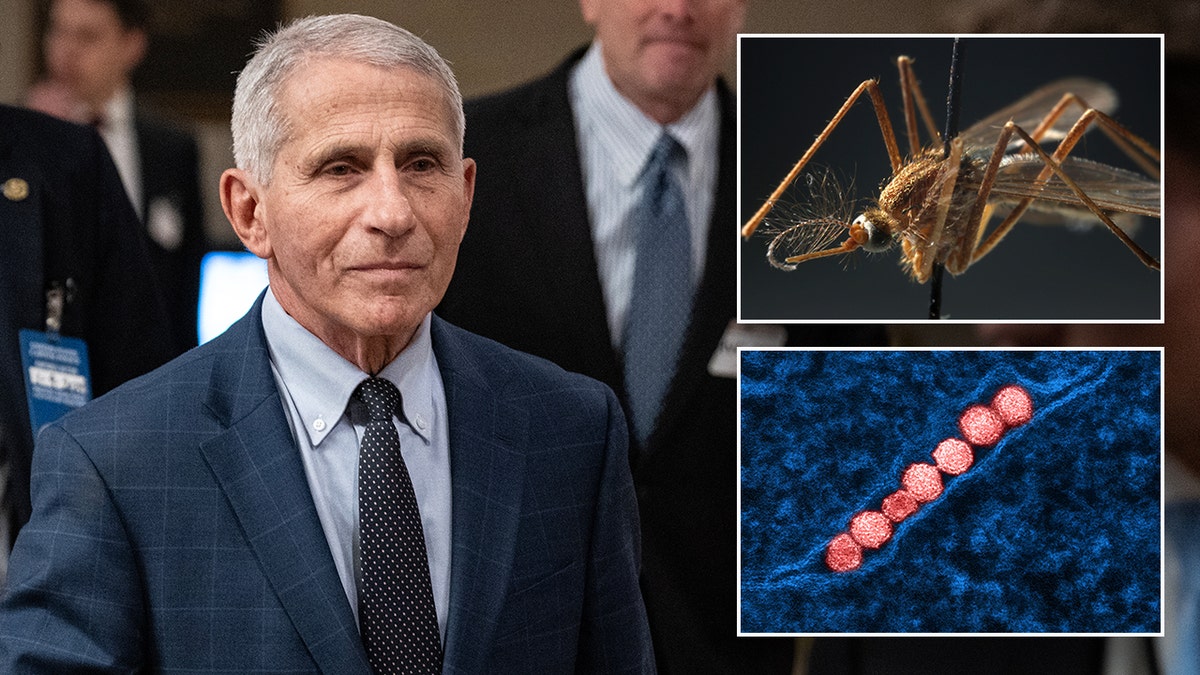Dr. Anthony Fauci, the public face of the U.S. coronavirus pandemic response, is speaking out about his “terrifying” bout with West Nile virus (WNV) in August.
In an op-ed in The New York Times on Monday, the former top infectious-disease official, now 83, wrote that he believes he caught the virus from a mosquito bite while outdoors at his Washington home.
He chalked up his weakness and fatigue to lingering COVID symptoms at first, until he “became delirious and incoherent with a temperature of 103 degrees,” leading to a six-day hospitalization.ANTHONY FAUCI’S WEST NILE VIRUS DIAGNOSIS: WHAT TO KNOW ABOUT THE MOSQUITO-BORNE DISEASE
“After I spent more than 50 years chasing and fighting viruses, one fought back and nearly took me down,” Fauci wrote.

“There is no treatment for West Nile virus disease, and I was left to deal with its toll on my body.”
He described the experience as “terrifying” and “harrowing.”“A very scary part of the ordeal was the effect on my cognition,” Fauci said.
WEST NILE DEATH REPORTED IN TEXAS AS HEALTH OFFICIALS WARN RESIDENTS TO SAFEGUARD AGAINST MOSQUITOES
“I was disoriented, unable to remember certain words, asking questions of my family that I should have known answers to.”
“I was afraid that I would never recover and return to normal.”
Fauci has since recovered, stating that the cognitive symptoms have subsided and he is now walking several miles each day.
“I was afraid that I would never recover and return to normal.”
“I tell my story because West Nile virus is a disease that, for many people, can have devastating and permanent consequences,” he wrote.
In the op-ed, Fauci called for more resources to address the threat of West Nile, which can have “devastating and permanent consequences.”
What to know about West Nile virus
As of Oct. 8, there have been 976 West Nile virus cases in the U.S. across 46 states, according to the Centers for Disease Control and Prevention (CDC).
Among those, 684 cases were neuroinvasive (severe).
Since the West Nile virus first entered the U.S. in 1999, it has become the leading cause of mosquito-borne disease in the country.
IN A POTENTIAL OUTBREAK, IS BIRD FLU TESTING AVAILABLE FOR HUMANS? WHAT TO KNOW
In most cases, the West Nile virus — a flavivirus in the same family as yellow fever, dengue fever, Japanese encephalitis and the Zika virus — is spread when Culex mosquitoes bite infected birds and then bite people and other animals, per the CDC’s website.

“I tell my story because West Nile virus is a disease that, for many people, can have devastating and permanent consequences,” Fauci wrote. (CBS)
The virus is not transmitted through eating or handling infected animals or birds — nor is it spread through physical contact, coughing or sneezing.
A vast majority — around 80% — of the people who contract the virus will not experience any symptoms, the CDC states on its website.
IN A POTENTIAL OUTBREAK, IS BIRD FLU TESTING AVAILABLE FOR HUMANS? WHAT TO KNOW
“It causes a rash and other symptoms, including swollen lymph nodes, which other viruses in its class do not exhibit,” Dr. Marc Siegel, senior medical analyst for Fox News and clinical professor of medicine at NYU Langone Medical Center, previously told Fox News Digital.
“It only affects the nervous system 1% of the time and is rarely fatal.”
Around one in five people will develop febrile illness, which is marked by a fever along with body aches, headache, joint pain, diarrhea, rash and/or vomiting.
The virus only affects the nervous system 1% of the time and is rarely fatal.








